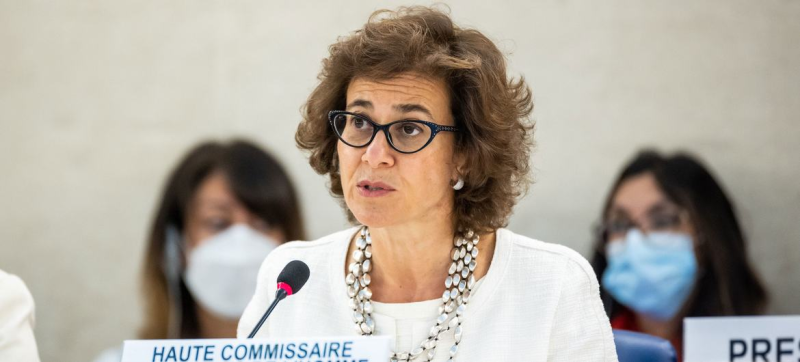- Gaza Families Face Dire Shortages as Aid Efforts Expand |
- Govt to Build 90 Cyclone Shelters to Boost Coastal Safety |
- Deadlock between 2 departs brings Gomti Bridge Project to halt |
- Village Games: Magical Childhood of BD Children in Winter |
- IsDB Group Business Forum Drives Sustainable Investment at WIC |
Global Aid Cuts Hit Development, Human Rights, and Health

Nada Al Nashif, Deputy High Commissioner for Human Rights, addresses the 51st session of the Human Rights Council in Geneva.
Sharp declines in global aid are undermining decades of human rights and development progress, the UN Deputy High Commissioner for Human Rights, Nada Al Nashif, warned on Monday.
Speaking in Geneva, she said the world was facing “declining respect for human rights and multilateralism,” with conflicts, debt, and shrinking development assistance threatening to reverse hard-won gains.
The 38-member economic cooperation organization OECD projects a 9 to 17 per cent fall in aid next year, and up to 25 per cent for the least-developed countries, while military spending has soared to record highs.
“The results speak for themselves: poverty reduction has stalled, and virtually all SDGs are off track,” Ms Al Nashif said, citing the World Bank’s warning of a “lost decade for development.”
Way Forward
Despite the bleak outlook, she said the right to development offered a practical path forward — by reshaping fiscal policies, strengthening social protection, and aligning global finance with human rights principles.
Nearly 40 years after the UN Declaration on the Right to Development, Ms Al Nashif urged governments to “move from words to action,” highlighting new momentum through initiatives such as the Sevilla Commitment and renewed global solidarity voiced at the 80th UN General Assembly.
UN Independent Expert: Belarus is No ‘Paradise’ for Workers
“Belarus is not the worker’s paradise authorities claim, despite their stated commitment to economic and social rights,” said UN independent human rights expert Nils Muižnieks at the UN General Assembly on Monday.
In his capacity as a Human Rights Council-appointed expert, Mr Muižnieks presented his latest report, revealing pervasive politically motivated discrimination and harassment in both the Belarusian public and private sectors.
Forced Labour
He found unjustified restrictions on access to jobs based on political grounds, and the use of forced labour for little or no pay as punishment for those unjustly incarcerated.
The report follows a two-year engagement under the International Labour Organization (ILO), which has placed Belarus under enhanced scrutiny for violations of trade union rights.
Mr Muižnieks, who is not a UN staffer and receives no salary for his work, recalled that over 1,100 people remain arbitrarily detained in Belarus, and some released individuals have been deported and had their passports confiscated, leaving them at risk of statelessness.
IOM Steps Up Ebola and Mpox Preparedness Across Africa
The International Organization for Migration (IOM) is scaling up its health response across Africa, addressing the Ebola outbreak in the Democratic Republic of the Congo (DRC) in September and supporting mpox preparedness in several countries.
The agency aims to make all points of entry fully operational for screening to prevent disease spread among mobile populations.
“These measures help prevent the spread of disease and keep both travellers and border communities safe,” said Frantz Celestin, IOM’s Regional Director for East, Horn, and Southern Africa.
Border communities face heightened risk due to high mobility and limited access to health services. Over 169,000 screenings have already been conducted.
Improved Mpox Response
IOM is supporting national mpox responses in Uganda, Ethiopia, Malawi, and South Sudan by enhancing surveillance, contact tracing, vaccination access, and using mobility data for public health planning and outbreak preparedness.

